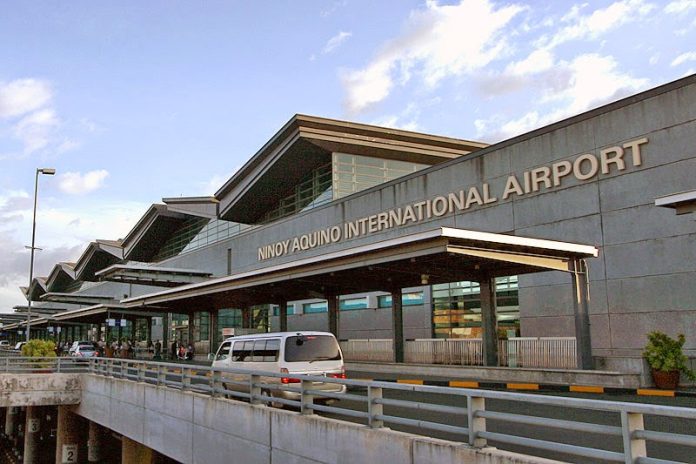-
Three bidders passed the technical evaluation and deemed compliant during the pre-qualification of financial proposals for the P170.6-billion Ninoy Aquino International Airport rehabilitation project
-
The technical proposals of GMR Airports Consortium, Manila International Airport Consortium, and SMC-SAP Company Consortium have been rated as “complying” while their financial proposals were likewise deemed compliant
-
SMC-SAP submitted the highest bid amount, offering to share 82.16% of future gross revenue, excluding passenger service charges, with the government
-
A detailed evaluation of the financial proposals will follow and the result will be announced on February 14
-
Transport Undersecretary for planning and project development Timothy John Batan said they proceeded with the bidding process despite “disputes submitted by certain bidders vis-à-vis other certain bidders” and that such disputes will be resolved before February 14
Three bidders have passed the technical evaluation and were deemed compliant during the pre-qualification of financial proposals for the P170.6-billion Ninoy Aquino International Airport (NAIA) rehabilitation project.
The project’s Pre-qualifications, Bids and Awards Committee (PBAC) in a bid bulletin issued on February 7 announced that the technical proposals of GMR Airports Consortium, Manila International Airport Consortium (MIAC), and SMC-SAP & Company Consortium have been rated as “complying.”
With this, PBAC moved with the February 8 opening of their financial proposals, which were also deemed compliant by the PBAC. This will be followed by the detailed evaluation and the result will be announced on February 14, as scheduled.
Another bidder who earlier pre-qualified, Asian Airport Consortium—which consists of Asian Infrastructure and Management Corp., Cosco Capital, Inc.; Philippine Skylanders Int’l, Inc.; and PT Angkasa Pura II—did not pass the technical evaluation.
READ: 4 bidders for NAIA rehabilitation declared qualified
Of the three bidders, SMC-SAP submitted the highest bid amount, offering to share 82.16% of future gross revenue, excluding passenger service charges, with the government.
GMR offered 33.30% while MIAC had the lowest offer of 25.91%.
Transport Undersecretary for planning and project development and PBAC chair Timothy John Batan earlier said that the bidder with the highest offer of gross revenue share, excluding passenger service charges, will win the NAIA concession.
MIAC is composed of GIP EM MIAC Pte. Ltd., Aboitiz InfraCapital, Inc., AC Infrastructure Holdings Corp., Asia’s Emerging Dragon Corp., Alliance Global – Infracorp Development Inc., Filinvest Development Corp., and JG Summit Infrastructure Holdings Corp.
GMR is composed of GMR Airports International B.V., Cavitex Holdings, Inc.; and House of Investments, Inc.
SMC-SAP, meanwhile, consists of San Miguel Holdings Corp., RMM Asian Logistics, Inc.; RLW Aviation Development Inc., and Incheon International Airport Corp.
Batan during the opening of financial proposals said they proceeded with the bidding process despite “disputes submitted by certain bidders vis-à-vis other certain bidders.”
He said those disputes are undergoing resolution by the PBAC pursuant to the adopted dispute resolution mechanism, and that such disputes will be solved before February 14.
“The final outcome of the bidding will be subject to the resolution of those disputes as well as the detailed financial evaluation…” Batan added.
The PBAC targets to issue the notice of award on February 15 while the deadline for post-award requirements submission by the winning bidder is on March 6.
The PBAC then has until March 12 to check compliance on the post-award requirements and targets the signing of the concession on March 15. After this, the winning bidder has up to 180 days to complete the conditions precent to the operations and maintenance start day, which is on September 11.
Batan earlier said that the bidder with the highest offer of gross revenue share, excluding passenger service charges, will win the NAIA concession.
He noted that with this, the government will be able to “get the most share” out of the earnings during the project’s concession period, and generate substantial additional revenue for the government.
The 15-year contract involves the rehabilitation, expansion and operation of NAIA to address long standing capacity issues. The project aims to increase NAIA’s annual capacity to at least 62 million passengers from 35 million and enhance air traffic movement from 40 to 48 per hour.
The contract adheres to Republic Act No. 6957, as amended by Republic Act No. 7718 (Build-Operate-and-Transfer Law), and its 2022 revised implementing rules and regulations.
Under a rehabilitate-operate-expand-transfer arrangement, the winning bidder has 15 years to enhance airport passenger terminals, airside facilities, develop commercial assets and utility systems, and provide surface access facilities for intermodal transfer, inter-terminal passenger transfer facilities, and services, among other obligations.
The concession period may be extended by another 10 years. The concession agreement mandates an upfront payment of P30 billion post-awarding of contract, a fixed annuity payment of P2 billion annually, and a government share of gross revenue—excluding passenger service charge revenue—based on the percentage share bid by the concessionaire. – Roumina Pablo





